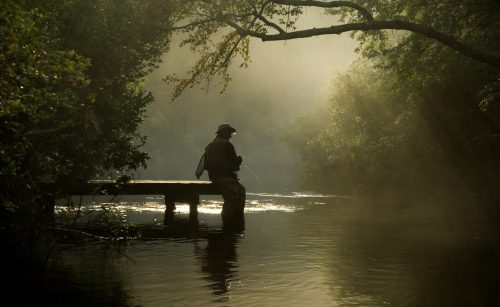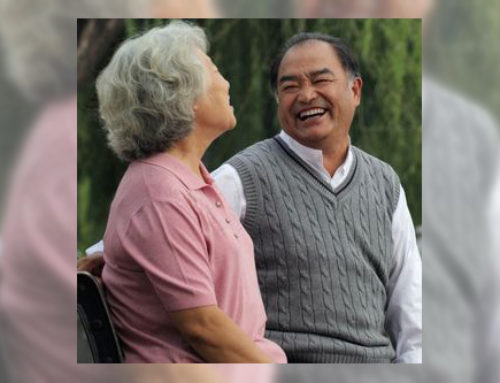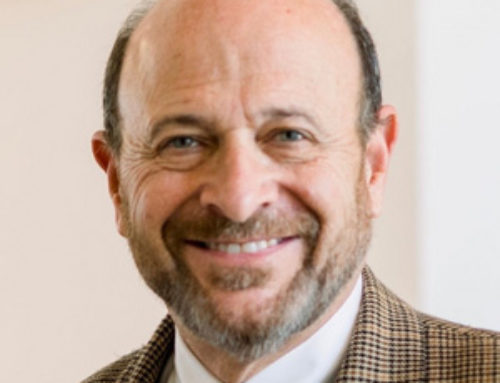 Guided by lessons and reflections from some of fly fishing’s most revered literature, and by your own experience, you can “read the water” of your own life for deeper meaning, face difficult questions and challenges, and create the life story you really want.
Guided by lessons and reflections from some of fly fishing’s most revered literature, and by your own experience, you can “read the water” of your own life for deeper meaning, face difficult questions and challenges, and create the life story you really want.
Reflections on Fly Fishing, a Meaningful Life, and Second Adulthood
Piscator Non Solum Piscatur- there is more to fishing than catching fish
Proverb from A Treatyse of Fysshynge with an Angle, part of the second edition of The Boke of Saint Albans written by Juliana Berners, 1496 – the first published work about fishing.
Norman Maclean understood this often-quoted proverb when he wrote his autobiographical novella, A River Runs Through It, a story about love and loss, the deepest joys and frailties of being human, and the parallel lessons of living and fly fishing. Maclean wrote, metaphorically, “it is not fly fishing if you’re not looking for answers to question.” The more profound message, of course, is that it is not fully living if you’re not asking difficult, important questions, the answers to which may be unclear, complex, or even nonexistent. But it is the asking that produces the most insightful guidance for living a meaningful life, making hard choices, and navigating change. This is especially true as we approach midlife, retirement, and beyond; as we transition to what’s now being viewed as a “second adulthood.”
What are some of those difficult, “haunting” questions that Maclean and other fly fishing authors such as Thomas McGuane, Ted Leeson, Jerry Kustich, Robert Traver, John Gierach, Nick Lyons, Harry Middleton, Bryn Hammond, and so many others figuratively pose in their respective stories from the stream? Not surprisingly, they are the same questions that often occupy our reflections about aging, taking new paths, reclaiming interests, and renewing purpose, the focus of writers and thinkers like James Hollis, Parker Palmer, David Brooks, Richard Rohr, Robert Johnson, Sara Lawrence Lightfoot, and Marc Freedman, to mention just a few. Fly fishing and the examined life, especially during our second adulthood, meet at the junction of profound and timeless questions that amplify as we age:
 What is your calling?
What is your calling?- Why do the people and things we care most about elude us the most?
- Why do we dwell more on what divides us than what we have in common?
- Why do we hurt the ones we love?
- Why do we dislike the people and ideas we understand least?
- What do we abandon and collect as we grow from childhood and through adulthood?
- What frightens us about ourselves and others, and why do we avoid rather than face it?
- Why is it so difficult to acknowledge our mistakes, and to ask for and receive help?
- What roles do faith, hope, and courage play in our personal and professional lives?
- What larger, unknown, or unconscious forces may influence our lives?
- How does our ingrained thinking and behavior reinforce and enable bad habits?
- How is change both intimidating and liberating?
- Why do we strive for perfection and control?
- How do we navigate the boundaries and responsibilities of our private and social lives?
- Where do we get stuck?
- How do I find solitude, quiet my thoughts and feelings, and draw inward?
These important questions, collectively, represent the trajectory of healthy development in adulthood. Ultimately, the capacity and courage to ask these, and to search for understanding and answers will influence the authenticity and depth of our personal and professional identities, relationships with others, and contributions to society. Moreover, coming to terms with these kinds of questions will force us to confront and embrace life’s inevitable uncertainties, complexities, contradictions, and paradoxes as opportunities to change, grow, and learn for the better. The central tenet of A River Runs Through It and, I suggest, purposeful adult life, is the capacity and faith to live where, in Norman Maclean’s words, “everything is luminous but not clear.” Most likely, this is your story as well.
Guided by lessons and reflections from some of fly fishing’s most revered literature, and by your own experience, you can “read the water” of your own life for deeper meaning, face difficult questions and challenges, and create the life story you really want. The full experience of fly fishing, on and off the stream, can help you define purpose, navigate change, clarify roles and relationships, and solve problems in your personal and work life. Fly fishing teaches essential skills and attributes for living and working, such as communication, trust, critical thinking, collaboration, leadership, conflict management, resilience, and agility. It offers solitude to sharpen insight, self-awareness, creativity, and imagination. It highlights the beauty and instructiveness of the natural world and its ecosystem, which in turn stimulates self-reflection, concentration, and integration of human experience with the physical world.
In short, fly fishing poses many of those “haunting” questions noted above which are sources of both joy and vulnerability in our lives, questions and meditations that generate understanding, healing, and love, for others and for ourselves. So, if there is more to fishing than catching fish, then I suggest it will be discovered wading and casting in waters that hold these questions, and dipping below the surface into our souls for answers and for a meaningful life.
I invite you to read these selected passages from the literature of fly fishing for additional reflection and illumination at the intersection of fly fishing, a meaningful life, and the questions and opportunities of second adulthood.
Haunted by Waters: Fly Fishing in North American Literature, Mark Browning
Ultimately, it seems, the best answer to the question why humans feel compelled to fish is that they fish in order to ask the question. Fishing is, by its nature, an uncertain and interrogatory endeavor. By engaging in this endeavor … the angler moves out of the realm of the known and into a creative realm of questions.
The pinnacle of fly-fishing methodology as presented in the works of many of its most celebrated writers is found in the paradox of what the angler is actually pursuing. Far from the simple pursuit of fish, the best angler pursues self-awareness.
The fly angler seeks to forge connections with past and future. They are sought with nature and other humans. Most obviously, they are sought with the fish that lurk beneath the water’s surface. The end result of these ties, however, brings with them the ultimate paradox of fly fishing. The product of these myriad relationships is not connection but separation. More precisely, the angler, by means of clearly establishing his or her relationship with the world, creates and defines a present, a personal space, and a clearer self-knowledge.
What the River Knows: An Angler in Midstream, Wayne Fields
To sit by a river is to enjoy the fittest place for contemplation even as one awaits a struggle with whatever monster might reside within those depths.
Rivers are themselves threads, lines that link us to whatever we have left behind.
I have maintained … the illusion of control, the dream of constancy. Change has always been the enemy…. The old dilemma: I want something to happen but nothing to change.
On the Spine of Time, Harry Middleton
Up in the mountains … I let myself drift toward what I like and enjoy rather than what others believe I need…. Once on the mountain highway, once the road rises out of these foothills and serpentines about the scalloped slopes of the mountains, things change, sensations change, priorities change. I change. I gather about me only what seems necessary, fundamental; I delight in what is basic—a cool wind; clean, fast water; the smell of sweet earth; a fat trout in deep water…. You take what is given, even the fear…. The fear is real and I fight it with the fly rod which lets me cast beyond the obvious…. The idea is to concentrate on living rather than merely surviving.
The Earth is Enough, Harry Middleton
The challenge never dulled; the thrill never faded. The reward was angling itself, just meeting the trout in its world, on its own terms, feeling the tenuous nature of its life and suddenly understanding the tenuousness of your own.
I cast my line, and felt the tug of cold water against my thighs. Always that tug, that urgency of motion, of life ongoing, resolute. I lost all sense of time, of place, of everything. Concentration absorbed me. Never had I felt such a consoling aloneness….I knew standing there in that stream that, from then on, things would be different…. I had changed in some fundamental way that I could not understand or undo. I felt, too, a sense of actually becoming, belonging. If my life as a refuge was not over, at least it had changed in both direction and purpose.
The Habit of Rivers: Reflections on Trout Streams and Fly Fishing, Ted Leeson
Trout streams tug at the mind with an insistent, contradictory pull, presenting both a plain and perfect simplicity and a subtle link to sources of hidden significance; fundamentally alike, yet endlessly variable, they offer the solace of the familiar and the inexhaustible fascination of a thing that can never fully be known.
Fishermen, like the rest of humankind, will talk relentlessly and authoritatively about what they understand least.
I don’t think I’m stretching the matter at all to say that given half a chance, a trout stream can make you a better person.
Holy Water: Fly-fishing Memories & Remembrances, Jerry Kustich
In my mind, beyond the catching of fish, I have always felt that just being in the wonderful places that trout—or any fish, for that matter—live is the best therapy for whatever ails the human soul…. perhaps it is the multi-dimensional interaction of water, artfulness, and meditative calm inspired by fly-fishing that is key to its impact on the human spirit.
The View from Rat Lake, John Gierach
The best thing about fly fishing is that it led you inexorably to one paradox after another.
The Longest Silence, Thomas McGuane
Early on, I decided that fishing would be my way of looking at the world. First it taught me how to look at rivers. Lately it has been teaching me how to look at people, myself included. To the reader accustomed to the sort of instructional fishing writing which I myself enjoy, I must seem to have gotten very far afield. I simply feel that the frontier of angling is no longer either technical or geographical. The Bible tells us to watch and to listen. Something like this suggests what fishing ought to be about: using the ceremony of our sport and passion to arouse greater reverberations within ourselves.
Angling is where the child, if not the infant, gets to go on living.
A River Runs Through It, Norman Maclean
Eventually, all things merge into one, and a river runs through it. The river was cut by the world’s great flood and runs over rocks from the basement of time. On some of the rocks are timeless raindrops. Under the rocks are the words, and some of the words are theirs. I am haunted by waters.
Steve Ehrlich
February 2020






Leave A Comment